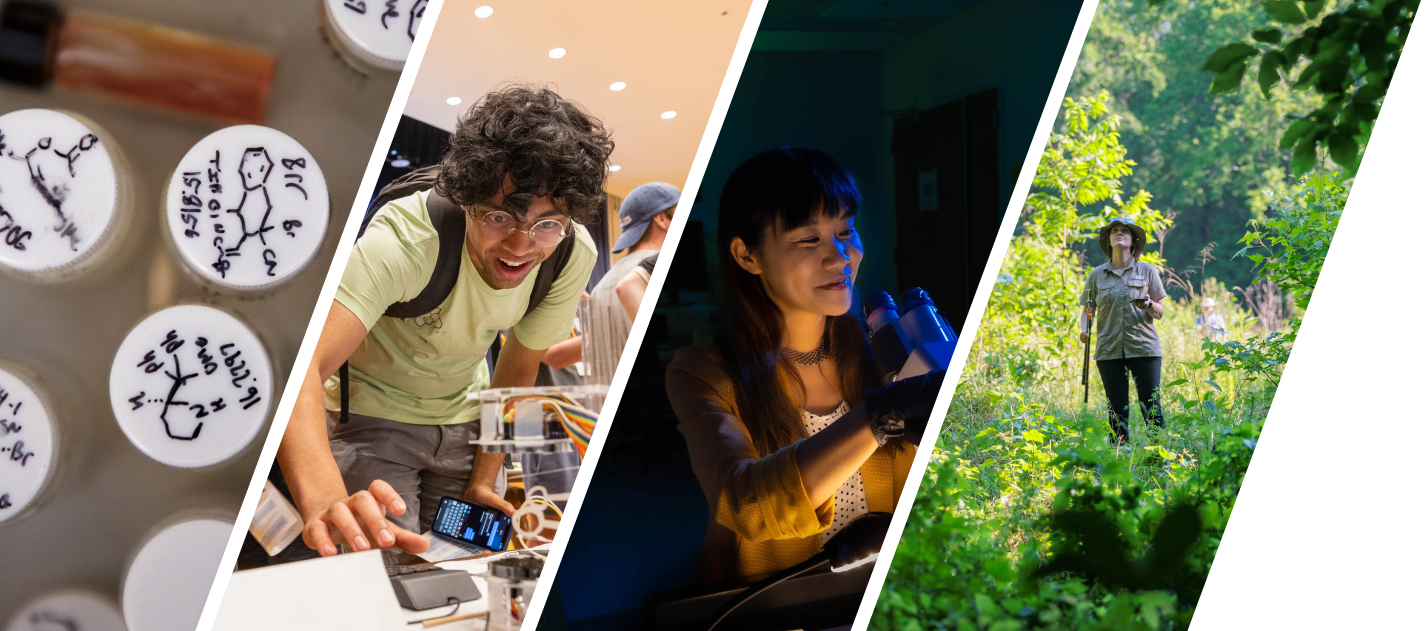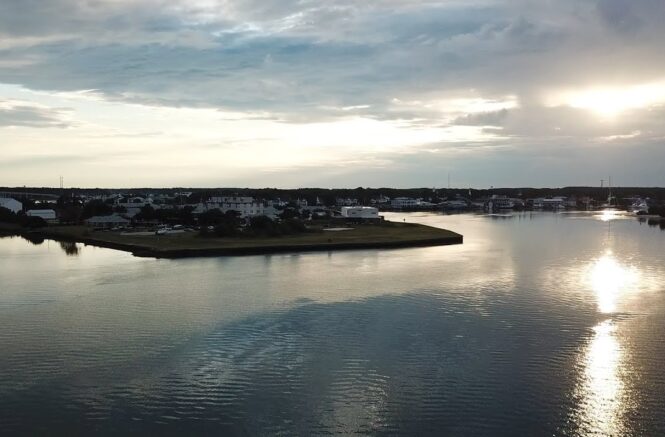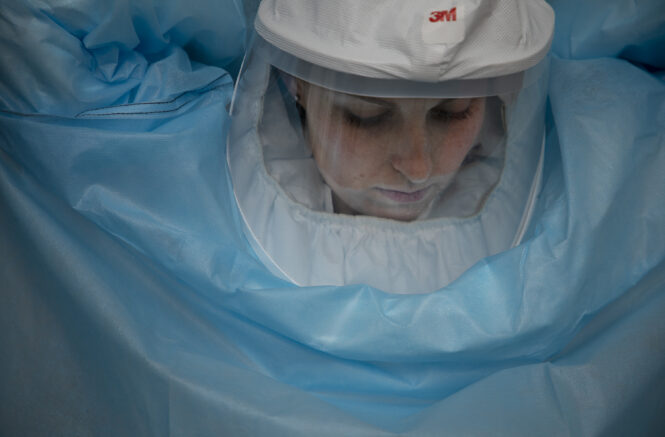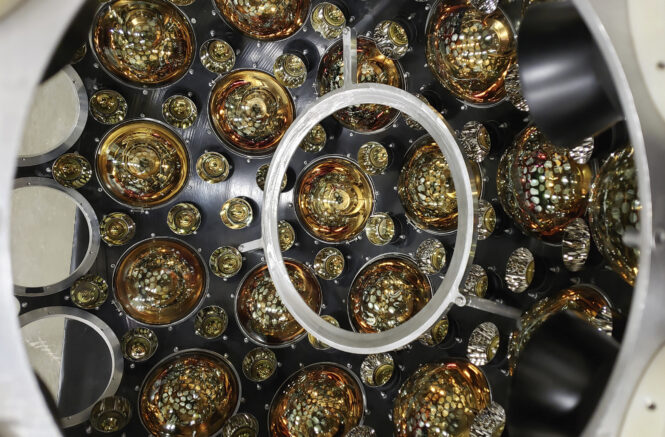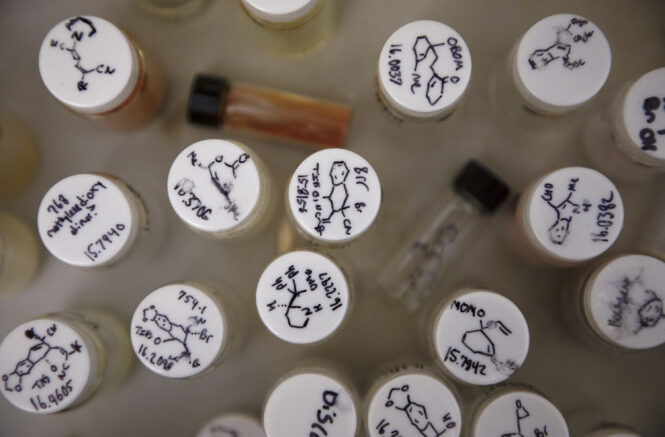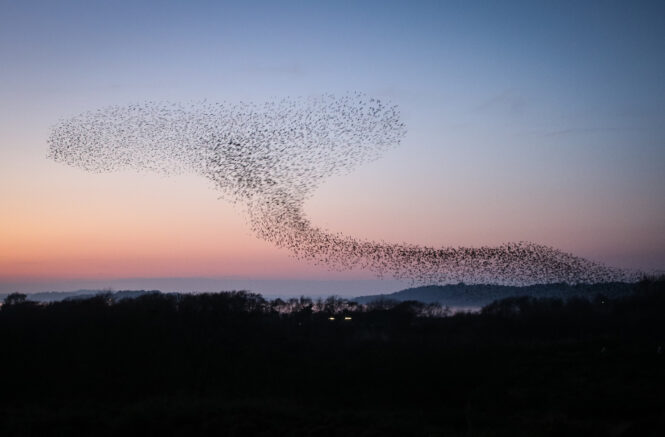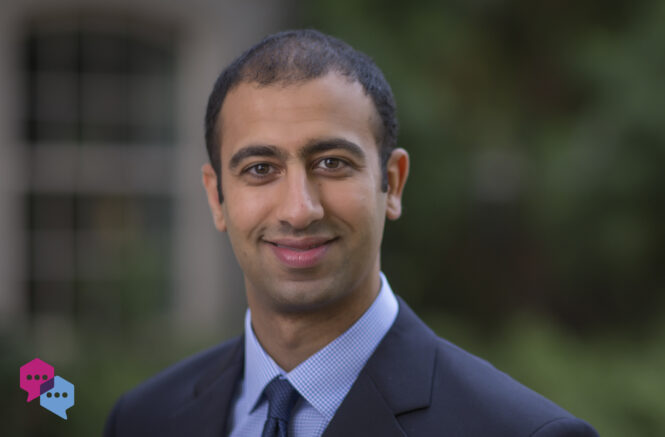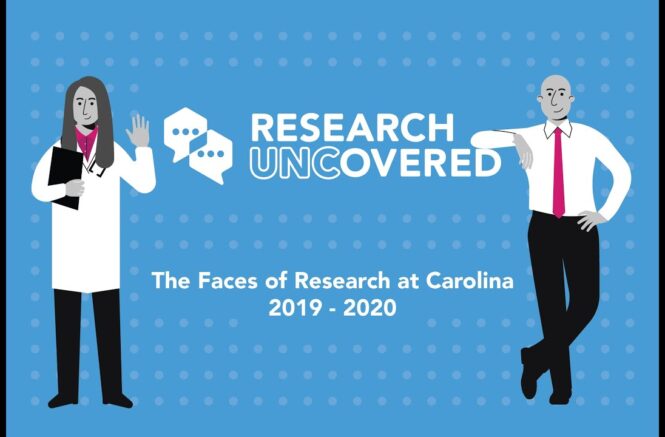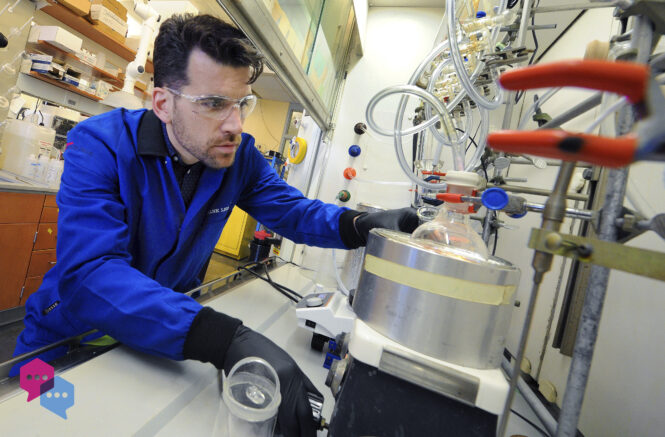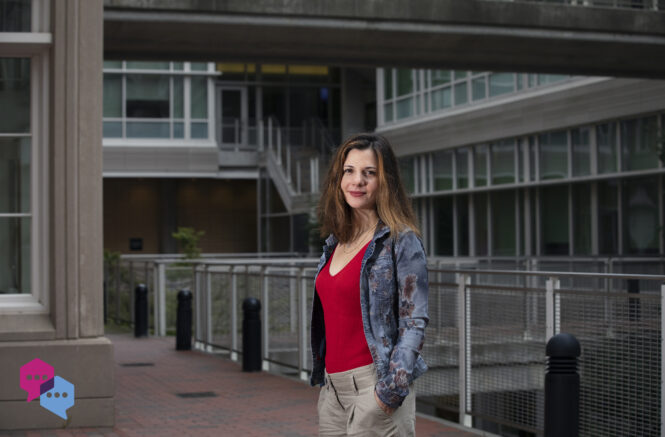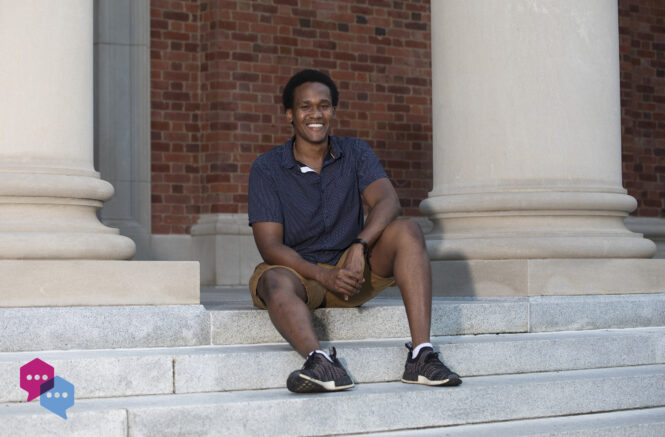Building Resilience for Storm-Battered N.C.
The record-breaking 2020 Atlantic hurricane season included 30 storms, and while North Carolina managed to dodge the 12 hurricanes that made landfall, that won’t always be the case in the future. A team of interdisciplinary researchers at UNC is combining their expertise in areas like human health, ecology, and urban planning to create a long-term holistic plan helping vulnerable communities prepare for the next generation of extreme weather events.
Ashleigh Henry
Ashleigh Henry is a junior and Chancellor’s Science Scholar majoring in environmental health sciences within the UNC Gillings School of Global Public Health. She studies how body mass index can lead to adverse birth outcomes, such as preterm birth and preeclampsia, and the correlation between consuming water infused with heavy metals and cancer rates.
READDI, Not Reactive
For decades, scientists warned of the potential for a global coronavirus outbreak. But when SARS-CoV-2 emerged, no therapeutics, drugs, or vaccines were readily available. The Rapidly Emerging Antiviral Drug Development Initiative (READDI) — founded by researchers at UNC and the Structural Genomics Consortium — is not only finding solutions to the COVID-19 pandemic, but also drugs and therapeutics for future viral outbreaks.
The Invisible Chase
Just over 100 years ago, physicists stumbled upon an elementary particle that could answer questions about the origin of the universe. Elusive and nearly massless, neutrinos may be the solution to understanding everything from the Big Bang to the inner workings of the atomic nucleus — and UNC physicist Julieta Gruszko can’t stop chasing them.
Tiny Molecules, Big Potential
North Carolina native and organic chemist Sidney Wilkerson-Hill is investigating ways to recreate the power of plants in the lab — work that could lead to advances in drug development.
Cooperation Over Competition
Flocks of birds. Schools of fish. Colonies of ants. Their strength is in numbers as they can fend off larger predators, move faster, and mate more easily. Daphne Klotsa, an applied physicist, studies how these biological swarms function in hopes to improve how humans and automated technologies navigate the world.
Saif Khairat
Saif Khairat is an assistant professor within the UNC School of Nursing and the Carolina Health Informatics Program. He researches how to use robust technologies, such as electronic health records and telehealth, to deliver safe and effective healthcare while expanding health access and equity to all people, including critically ill patients and vulnerable populations.
Research UNCovered, 2019-2020
Since Fall 2019, Research UNCovered has showcased the many faces of research at Carolina, from undergraduate students to faculty, across all disciplines. So far, the series has featured 54 researchers from 10 schools, three centers and institutes, the North Carolina Botanical Garden, and UNC's research offices.
Frank Leibfarth
Frank Leibfarth is an assistant professor in the Department of Chemistry within the UNC College of Arts & Sciences. He studies how to transform chemical building blocks into plastics to provide new and useful solutions for sustainability and human health.
Daphne Klotsa
Daphne Klotsa is an assistant professor in the Department of Applied Physical Sciences within the UNC College of Arts & Sciences. She studies the physics of swarms — systems that exhibit emergent collective and cooperative behavior such as flocks of birds, schools of fish, and crowds of people — in order to engineer similar systems composed of moving parts, from self-propelled nanoparticles in solution to cars in traffic.
Mad About Media
Alice Marwick learned how to code when she was 11 and began working in the tech industry at 19. After the dot-com bubble burst, she realized she could combine her passion for technology with her love for social science in a graduate program. Now, the UNC communications professor researches disinformation and privacy, two of the most pressing issues in the world of media ethics.
Derrick Carr
Derrick Carr is a PhD student in the Department of Physics and Astronomy within the UNC College of Arts & Sciences. He searches for rare, compact galaxies called nuggets and strives to understand how they form and evolve.



